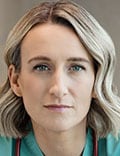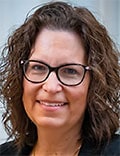With the sudden imposition of US tariffs dominating the debate about Canada’s April 28 federal elections, medical groups are seeking to keep healthcare concerns on the agenda.
The Canadian Medical Association (CMA), the College of Family Physicians of Canada, the Canadian Cancer Society, and the Canadian Public Health Association are among the groups that have campaigns underway to promote voter participation.
These drives come as US federal budget cuts and policy shifts may put that country’s health messages and missions at odds with those of Canada.
“We hear this often in elections, but I think that this election is truly a turning point,” Joss Reimer, MD, MPH, president of the CMA, told Medscape Medical News. “Things have shifted in the world.

“We need to protect the health of Canadians by having our politicians ensure that there are reliable sources of information and that we have strong research components in Canada so that we can continue to come up with the cures that we need to see for cancer, diabetes, and heart disease,” Reimer added. “We want to make sure that physicians’ voices are heard.”
As is customary, these medical groups have not endorsed any parties or candidates. They instead are encouraging members to reach out to candidates and ask them to address concerns about healthcare issues.
“We want to work with whoever is in government,” Carrie Bernard, MD, MPH, president of the College of Family Physicians of Canada, told Medscape Medical News. “It’s always important for us to have really good relationships. And no matter who’s in government, we’re always meeting with politicians throughout the year.”

Party Platforms
To assess the major parties’ messages on healthcare for the current federal campaign, Medscape Medical News reviewed the press releases that they issued after the election was announced on March 23.
The Liberal Party, led by Prime Minister Mark Carney, has not made healthcare its top campaign issue as of this writing. On April 1, the party mentioned a plan to expand dental coverage to Canadians aged 18-64 years to provide access to around 4.5 million Canadians. This appeared as the fifth item in a list included in a press release about efforts to make life more affordable.
The Conservative Party, led by Pierre Poilievre, has mainly focused on taxes, crime, and immigration. It recently endorsed the expansion of drug recovery programs.
Bloc Québécois, led by Yves-François Blanchet, has focused on protecting local enterprises. But the party noted on March 31 that the budget cuts to US federal research programs could prove a boon for Canada, allowing it to recruit more scientists. If Donald Trump wants to provoke a brain drain from the United States, then the Canadian federal government should work with provinces and universities to attract new American talent, Blanchet said.
The New Democratic Party, led by Jagmeet Singh, issued a press release on April 5 about the shortage of primary care physicians in Canada. It outlined plans for federal actions intended to give every Canadian access to a family doctor by 2030. These plans included streamlining the process for US doctors to come to Canada, especially in women’s and reproductive health, and funding residencies for internationally trained doctors living in Canada.
Still, the shortage of medical professionals remains a constant concern in Canada for elected officials, Rita McCracken, MD, PhD, family physician and primary care researcher and assistant professor at the University of British Columbia in Vancouver, told Medscape Medical News. “If Carney or Poilievre were to be asked about it, I’m sure they would have some notes about healthcare that are going to include primary care,” McCracken said.
The state of Canadian healthcare, particularly with primary care, remains an important issue in the political contests underway, said Bernard. “It’s always on the minds of Canadians when we’re having elections because we’re very proud of the fact that our healthcare system is universal and accessible,” she said. “They never want that to be lost. So, it’s always there. It’s just that this year something else seems to be really overshadowing it.”
Survey data suggest that about 1 in 5 Canadians, an estimated 6.5 million people, don’t have a family doctor or nurse practitioner they see regularly, according to the CMA.
Federal Role in Health
While provinces and territories have the leading role in directly managing healthcare for Canadians, the federal government also plays a large part, even beyond sending transfer payments. It can direct research and set policies intended to remove hurdles for clinicians, especially those who commit to family medicine. For example, the federal government last year expanded the eligibility of a student loan forgiveness program for family physicians and nurses to include Canadian communities of 30,000 or fewer residents.
“The federal elections are about setting a direction for the country. We’re in this particular moment where we are the most unified we’ve ever been, but we’re also facing unprecedented economic challenges,” Daniel Nowoselski, advocacy manager for Hospice Palliative Care for the Canadian Cancer Society, told Medscape Medical News.
Ahead of this federal election, there has been an emphasis on discussions of tax cuts, said William Ghali, MD, MPH, vice president for Research at the University of Calgary, Calgary. He argues that even in these times, Canadians need their federal officials to consider what kinds of long-term investments in research and development could pay off in the future.
“How are we going to increase the public purse and the overall prosperity of Canada?” Ghali asked. “How do we incentivize big companies to do in-house research and development that produces patents, innovations, and wealth that then flows into taxes to create opportunity for our country?”
Candidates in the federal election need to hear from the medical professionals in their communities, said Ian Culbert, executive director of the Canadian Public Health Association. People working in clinical care and fields like public health have insights not only into the Canadian healthcare system but also into major social issues, he added.
“They can challenge candidates to go beyond rehearsed answers or the talking points that they’ve been given by the party.” By doing this, medical professionals may be able to educate candidates and help them spell out more clearly what they would do once they are in office. “The public shouldn't be satisfied with easy answers or simple answers to complex issues,” Culbert said.
Kerry Dooley Young is a freelance journalist based in Washington, DC. She has reported on medical research and healthcare policy for more than 25 years.

